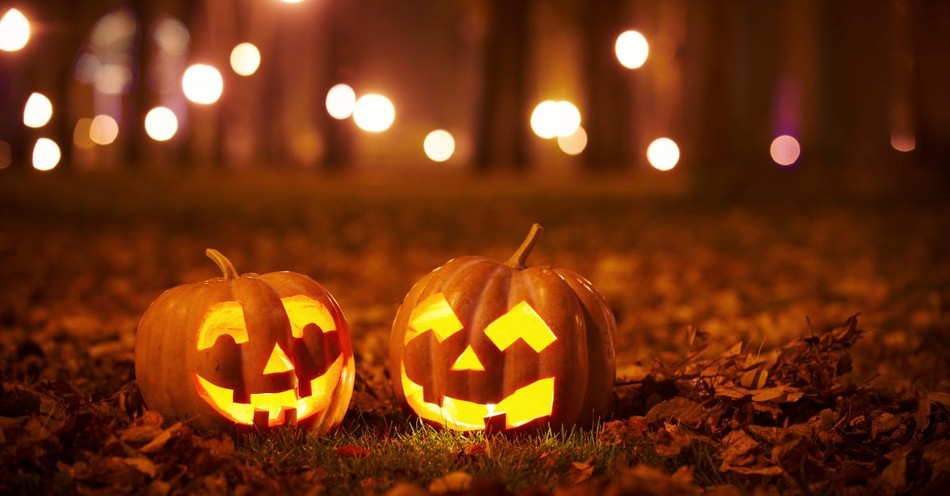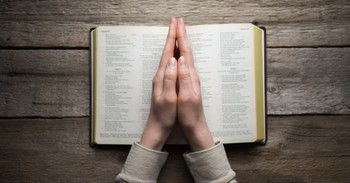When I was growing up in the 1970s and 80s, I didn’t know anyone, except a Southern Baptist family, who didn’t “celebrate” Halloween. The hundreds of Catholic and Protestant kids in our grammar schools would dress up in costumes, have school parties, and go trick-or-treating. For weeks leading up to Halloween, we would have school projects that included traditional Halloween images: witches, black cats, jack-o-lanterns, bats, and more. Our parents never questioned if we “should” celebrate the holiday–there was never a belief that what we were doing was evil or unbiblical.
Yet when I became a follower of Jesus as a young adult and had my own child, I was challenged by many Christians who thought Halloween should be ignored. The two Christian schools that my daughter attended treated October 31 as any other day, and encouraged parents to study the history of Halloween (of which I was ignorant) and why it was a sin to take part in Halloween activities.
Additionally, Halloween has continued to grow in popularity over recent years, even spurring celebrations like "Summerween" that promote a focus on the holiday even outside of the fall season. With its increased popularity in our culture, Christians would do well to think through our response to this holiday.
So, what is the right approach as Christians: to let kids have their candy-coated fun, ignore the “holiday,” or come up with alternatives? It’s each parent’s decision, but let’s take a look at the history of Halloween and what the Bible has to say in order to make the best God-honoring decision.
What Is the Origin and History of Halloween?
In a Library of Congress blog post, Heather Thomas writes, “... the Halloween holiday has its roots in the ancient Celtic festival of Samhain (a Gaelic word pronounced “SAH-win”), a pagan religious celebration to welcome the harvest at the end of summer, when people would light bonfires and wear costumes to ward off ghosts.” History.com adds that the Celts, who lived 2,000 years ago in Ireland, England, and Northern France, celebrated their new year on November 1.
For them, this meant the end of the summer and its harvest–and was the beginning of a cold and dark winter. This season was often marked by death, as people would run out of food, freeze to death, and didn’t have the ability to treat illnesses common in winter. “Celts believed that on the night before the new year, the boundary between the worlds of the living and the dead became blurred. On the night of October 31 they…believed that the ghosts of the dead returned to earth.” People began wearing frightening costumes during Samhain to confuse the evil spirits.
But there was much more that developed from this belief in roaming spirits. Thomas also writes of the origin of the jack-o-lantern, which is a staple of Halloween celebrations. Legend has it that there was a man named Stingy Jack who trapped the devil, and only let him go if the devil promised Jack wouldn’t go to hell. But when Jack died, he was forced to wander the earth because heaven didn’t want him. “The Devil gave Jack a burning lump of coal in a carved-out turnip to light his way. Locals eventually began carving scary faces into their own turnips to frighten away evil spirits.” Turnips then became pumpkins with scary faces.
On the other hand, there are those who say that Halloween didn’t begin as a pagan tradition. In her article “Is Halloween a Pagan Holiday? Origin of Halloween,” Jessica Brodie writes, “Halloween is meant to refer to the evening before All Holies Day, also known as All Saints Day, a religious holiday in the Roman Catholic and many Protestant denominations of Christianity to honor Christians who have died (also called saints) and gone to heaven.” She contends that most scholars believe there is no tie between the Samhain festival and the Christian Halloween that was instituted in the Middle Ages. “… it doesn’t seem likely that a church thousands of miles away, in Rome, would orchestrate a major religious festival simply to tie it to a seasonal celebration marked only by a handful of people in the Northern Celtic region of the world.”
Regardless of the origins of Halloween, the more pressing question for today’s Christians is this: What does Halloween look like in our current culture, and how should we respond to it?
I’ve seen a noticeable shift in the tone of Halloween in recent decades. In my own neighborhood, some families decorate with cheerful pumpkins, lights, and scarecrows—evoking a harvest theme. Others, however, create disturbing, grotesque displays that glorify death, horror, and darkness (and parents with young children refuse to go by these houses).
While I don’t know my neighbors’ intent, the focus on evil and fear raises valid concerns. Even if Halloween didn’t originate in paganism, the way it is often “done” today can contradict the values God calls His children to live by.
And speaking of children, if you’ve raised yours in a Christian home, they may have questions about Halloween. You may choose to tell them something like:
"Halloween is a day when lots of people dress up in costumes, go trick-or-treating, and have fun. A long time ago, it was connected to a Celtic festival called Samhain which made up unbiblical, creepy stories and traditions. As Christians, we celebrate it as All Hallows Eve which is the night before All Saints Day, when we remember Christians who have died. Today, some people just treat it like a fun night for candy and costumes, but some things you see, like scary decorations, don’t honor God. So we choose to celebrate in a way that keeps our hearts focused on what’s good."
What Does the Bible Say About Halloween?
You will not find the word Halloween in the Bible, but many of the themes associated with the contemporary, secular celebration—especially its glorification of evil, even if unintentional—are addressed clearly in the Bible. Some relevant Scripture passages are below:
“Let no one be found among you…who practices divination or sorcery, interprets omens, engages in witchcraft, or casts spells, or who is a medium or spiritist or who consults the dead. Anyone who does these things is detestable to the LORD…” (Deuteronomy 18:10-12).
“Finally, brothers and sisters, whatever is true, whatever is noble, whatever is right, whatever is pure, whatever is lovely, whatever is admirable—if anything is excellent or praiseworthy—think about such things” (Philippians 4:8).
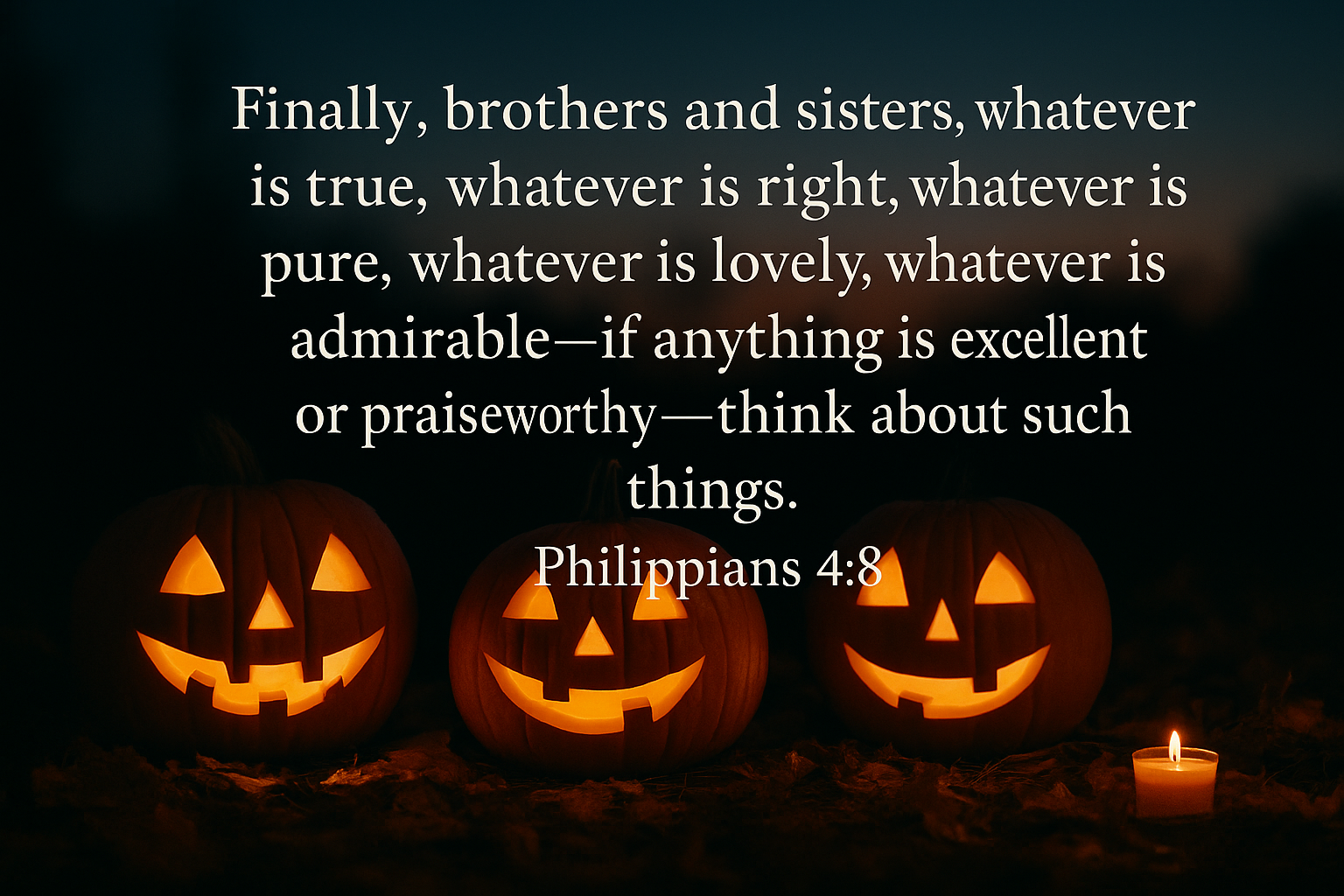
“We demolish arguments and every pretension that sets itself up against the knowledge of God, and we take captive every thought to make it obedient to Christ” (2 Corinthians 10:5).
“You will keep in perfect peace those whose minds are steadfast, because they trust in you” (Isaiah 26:3).
“Do not conform to the pattern of this world, but be transformed by the renewing of your mind. Then you will be able to test and approve what God’s will is—his good, pleasing and perfect will” (Romans 12:2).
“You were taught, with regard to your former way of life, to put off your old self, which is being corrupted by its deceitful desires; to be made new in the attitude of your minds; and to put on the new self, created to be like God in true righteousness and holiness” (Ephesians 4:22-24).
The Bible warns us that we have a very real enemy who wants to take our attention and affection away from the Lord and live like the world. At Halloween, we may be tempted to take part in scary or creepy activities, thinking it’s not a big deal, but it is a big deal to God. We need to remain aware that worshipers of Satan, wizards, witches, and Wiccans still celebrate a pagan, evil Halloween that includes occult practices. Some believe if Christians participate, they too are honoring Satan.
As Christians, we live “in the world,” but we are not “of the world” and are protected from the enemy by Jesus’ sacrifice. If we stay in the Word and focus on becoming more like Christ in what we do and think, then we can make God-honoring decisions about what to do with Halloween. And I believe there are ways to celebrate as Jesus followers.
Should Christians Celebrate Halloween?
You may be someone who believes that any recognition of Halloween is wrong. Choosing to abstain entirely may be what you feel called by God to do—and that’s a conviction that you should honor, without pressure from others. Perhaps you don’t want any association with a day that may have pagan origins, or you’re concerned about how Halloween has devolved over the years into something darker or more disturbing.
Or perhaps you believe that Christians can redeem holidays—days that were once truly “holy days,” such as Christmas, Easter, Thanksgiving, and even Halloween. Each of these has been, to some extent, co-opted by the world and reshaped into secular events driven by consumerism and the pressure to “keep up with the Joneses.”
Halloween presents a unique opportunity to show others that God is sovereign, and that He can be glorified in how we choose to celebrate—not just on traditional holy days, but every day, including October 31. What matters is staying true to God’s command to love Him with all our hearts, souls, minds, and strength–and to love our neighbors as ourselves. So, how can we keep Christ at the center of Halloween just as we try to do every other day?
Christian Alternatives to Halloween
By alternatives I mean what activities can Christians participate in on Halloween that are different from the mainstream? Let’s always keep in mind that we should consider our Halloween events as an outreach to those who are unbelievers. Here are a few ideas of what some Christians and churches can do on October 31:
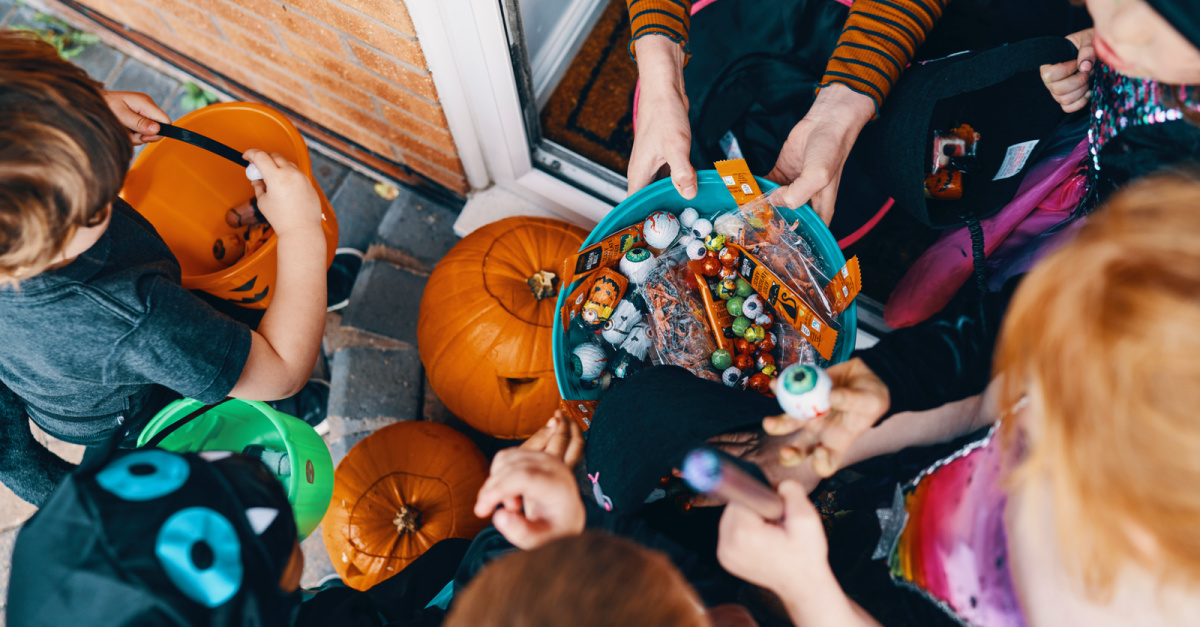
In your neighborhood:
Welcome trick-or-treaters with decorations that emphasize harvest, such as pumpkins, hay bales, etc.
Sit outside of your house to greet trick-or-treaters so that you don’t miss anyone. Maybe have a fire pit going and have neighbor kids who are with their parents stop to make s’mores.
Engage in conversation with the kids. Ask why they chose the costume they did, what they wore last year, if their school had a Halloween party, what their favorite candy is, etc. Make them feel special, even if they are in a hurry to go out and collect candy. And give premium candy if you can afford it.
Consider giving away something in addition to or instead of candy that will show you care, like glow sticks to help them see. Maybe these can have a sticker that says “Jesus lights our way home” for example. You can also make individual goodie bags that have candy, stickers, and a “God bless you–have a safe Halloween” message handwritten on a card inside.
There are other great ideas about engaging with trick-or-treaters in the article “10 Ways to Show Christ’s Love to Trick-or-Treaters This Year”
In the community:
While this idea is done most often at churches, I believe it would be great to move it into the community. Why not gather with like-minded churches in your community and host a large “Trunk or Treat” event? Families create a game that can be played out of the trunk of their car, e.g. a ring toss game, a corn hole type game. Or they can just decorate their trunk with a clever theme. Children walk through the event playing games and getting candy. You can include in their goodie bags a short blurb about what churches participated and why. Be sure to emphasize how much you believe God calls you to care for your neighbors, and that you were so glad they came (including an invitation to church as well).
At your church: host a large-scale harvest festival (emphasis on harvest of foods that God provides). Celebrate with games such as:
Pumpkin bowling–using smaller pumpkins so even small kids can play (remove stems as much as possible) and make “pins” out of long gourds that are cut off at bottom to stand up;
Pumpkin decorating–painting or carving (if participants paint pumpkins, remind them not to leave outside as the paint may poison squirrels or other wildlife;
Corn Hole (bean bag toss)
Caramel apple decorating contest
Apple toss (into buckets)
Pumpkin ring toss (make sure pumpkins have their stems)
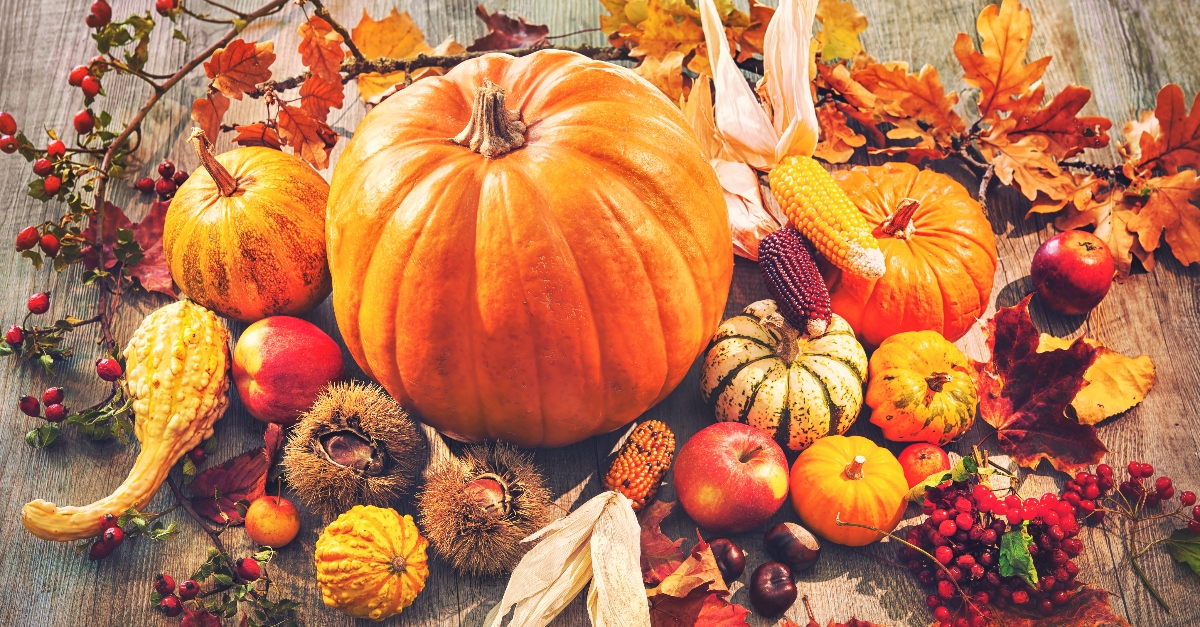
For more ideas:
5 Halloween Activities that Point Kids to Jesus
5 Ways Christians Can Biblically Celebrate Halloween
Halloween: A Matter of Prayer, Discernment, and Boldness
In light of some of Halloween’s origins in paganism and occult practices, along with the Bible’s clear stance against witchcraft, idolatry, and celebrating evil, Christians should prayerfully consider participating in anything related to it. We need to ensure that if we choose to take part in the day, that we are claiming it for Christ and participating in His name. While many today see Halloween as harmless fun, it’s important to ask whether what we participate in aligns with God’s truth and glorifies Him. Rather than conforming to cultural norms, believers can use this time to offer Christ-centered alternatives—such as fall festivals, outreach events, and neighborhood ministry—that reflect God’s goodness and truth. Ultimately, the decision should be rooted in our desire to honor God in every area of our lives.
Read More about Halloween and Find More Resources Here:
Why Was Evil Celebrated on Halloween In The Past And Is It Still Celebrated Today?
What Does the Bible Say About Witchcraft?
Should Christians Really Celebrate Halloween?
What Does the Bible Say About Ghosts?
The Connection Between Halloween Reformation Day
Is The Origin of Halloween Rooted In A Pagan Holiday?
Can Christians Believe in Ghosts?
10 Spooky Stories in the Bible for Halloween
What Does the Bible Say About Halloween?
Horror Movies Christian Themes for Halloween
Does Halloween Really Celebrate Evil and Darkness?
What Is the History Of Halloween?
5 Ways Christians Can Biblically Celebrate Halloween?
Is Halloween Satan’s Birthday?
The Surprising Hidden Spiritual Lessons in: It’s the Great Pumpkin, Charlie Brown
How Should Christians Respond to Halloween?
Why Do We Celebrate Fear at Halloween?
Should Christians Embrace or Avoid Halloween Traditions?
Why Do We Say Have a Spooky Halloween?
4 Evangelism Ideas for Halloween
5 Myths About Halloween That Are Not Biblical
Is Allhallowtide the Same As Halloween?
Photo Credit: ©iStock/Getty Images Plus/sandsun
Mary Oelerich-Meyer is a Chicago-area freelance writer and copy editor who prayed for years for a way to write about and for the Lord. She spent 20 years writing for area healthcare organizations, interviewing doctors and clinical professionals and writing more than 1,500 articles in addition to marketing collateral materials. Important work, but not what she felt called to do. She is grateful for any opportunity to share the Lord in her writing and editing, believing that life is too short to write about anything else. Previously she served as Marketing Communications Director for a large healthcare system. She holds a B.A. in International Business and Marketing from Cornell College (the original Cornell!) When not researching or writing, she loves to spend time with her writer daughter, granddaughter, rescue doggie and husband (not always in that order).
